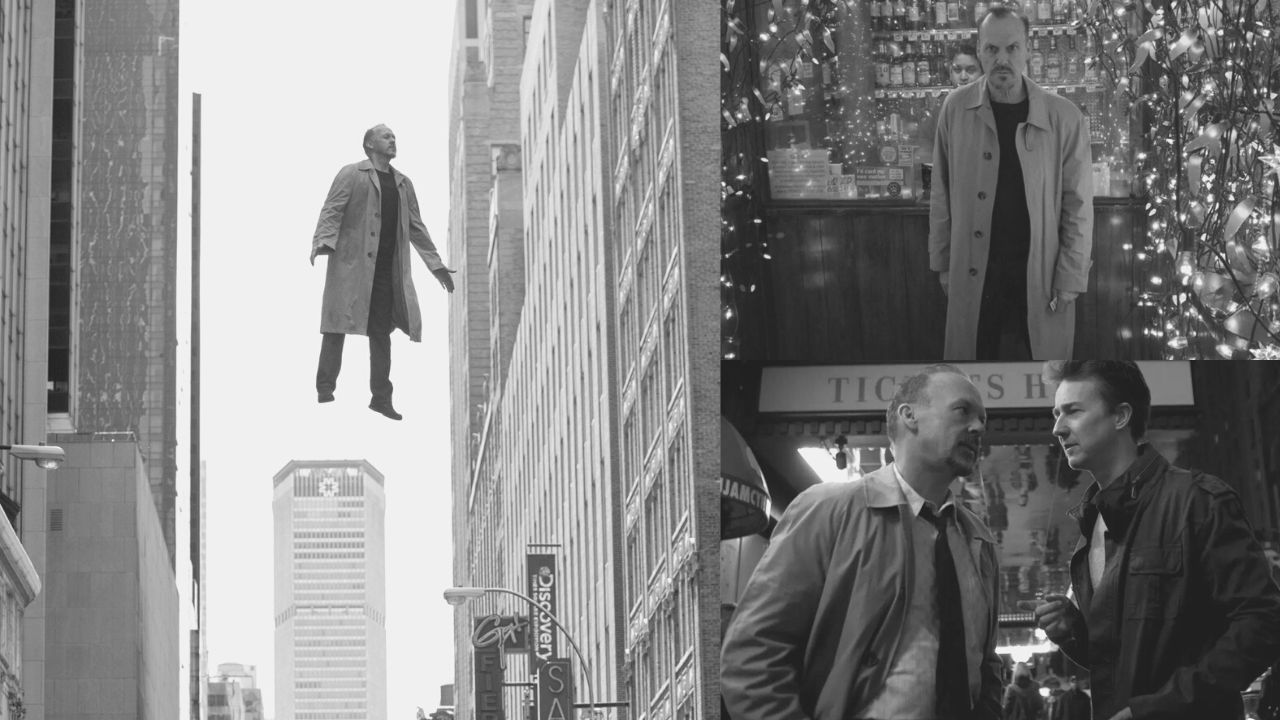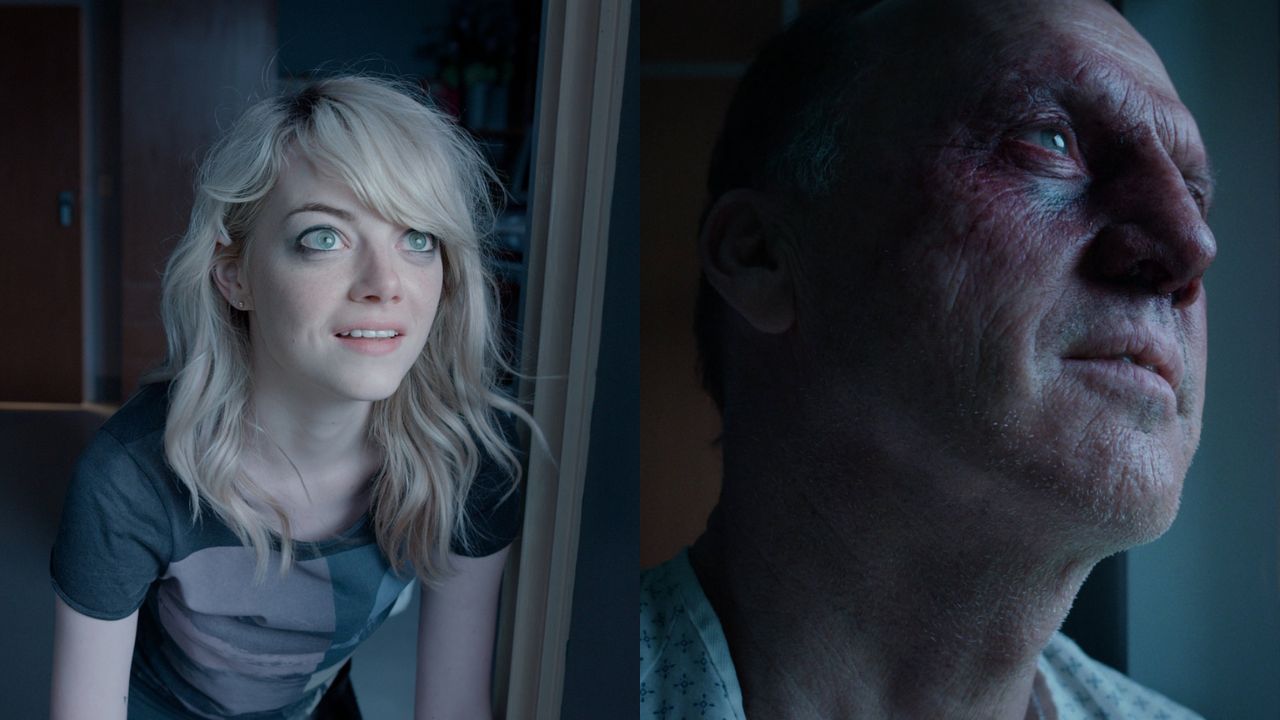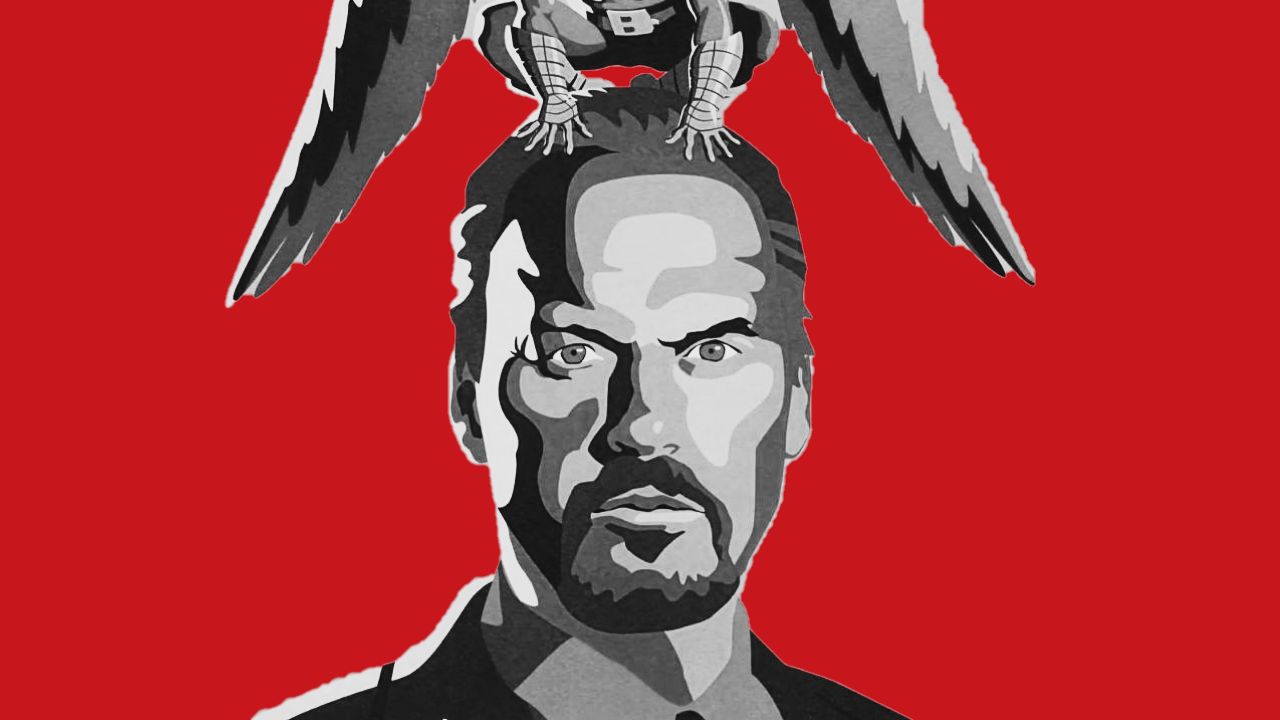This post includes a brief plot summary and an explanation about the ending of “Birdman” (2014). Beware of spoilers.
Directed by Alejandro González Iárritu, the comedy drama stars Michael Keaton as Riggan Thomson, Emma Stone as Sam Thomson and Edward Norton as Mike Shiner.

The film “Birdman” is about a former Hollywood star (Riggan Thomson) who once achieved great fame by playing the lead in a superhero film, Birdman. He is now trying to reinvent himself as a serious actor and playwright by adapting a Raymond Carver story for Broadway. However, the actor faces many challenges and conflicts, both internal and external, as he prepares for the opening night of his play.
What Happens in Birdman? (Plot Explained)
While setting up his play, Riggan has to deal with his egotistical co-star, Mike Shiner, who is constantly trying to steal the spotlight from him. Riggan’s personal life is not perfect. The actor is currently divorced from his former wife, Sylvia. Also, Riggan’s estranged daughter and assistant, Sam, resents him for being a neglectful father.
Riggan’s best friend and lawyer, Jake, is the one helping the actor keep the production afloat. Meanwhile, it seems that Riggan is dealing with some mental health issues. The actor often hallucinates about being able to manipulate reality with telekinesis and flying powers. Apparently, Riggan has an alter ego, the voice of Birdman, who constantly taunts him and urges him to return to his former glory.
Despite having an intense desire to prove himself as a relevant and respected artist, Riggan also fears criticism from others, especially from Tabitha Dickinson. She is a well-known critic and a cynical reviewer. This woman dislikes Riggan and vows to destroy his play.
On the opening night, Riggan decides to use a real gun instead of a prop one. In the final scene of his play, where his character commits suicide, Riggan shoots himself in the face. The play receives rave reviews and Riggan becomes a sensation.
The Ending of Birdman Explained
“Birdman” ends with Riggan waking up in a hospital room with a bandaged nose. His family, Sylvia and Sam, together with his best friend, Jake, all congratulate him on his success. While they leave his room for a moment, Riggan sneaks out of the window and appears to fly away. When Sam returns, she looks up and smiles.
If you are feeling slightly confused about the ending of the film, don’t worry, it’s understandable. The ending of “Birdman” is open to interpretation and has sparked many debates among viewers and critics. Below, you’ll find some of the main theories regarding the final scene.
Theory no. 1: Riggan died on stage and the hospital scene is his fantasy.
Some people believe that Riggan actually succeeded in killing himself with the real gun on stage. Everything that happens afterwards is all part of his “dying fantasy”. In this theory, Riggan imagines receiving praises from critics and reconciling with his family, and finally freeing himself from his Birdman persona.
Theory no. 2: Riggan survived the gunshot and the hospital scene is real.
In this scenario, Riggan did not die on stage, but he did injure himself badly. The hospital scene is real, and Riggan actually receives positive reviews and acclaim for his play. He also manages to mend his relationship with his daughter and his ex-wife. However, there is still a side of the actor that is dissatisfied and restless. Therefore, Riggan decides to end his life for real this time by jumping out of the window. His daughter, Sam, seeing what her father did, loses her mind, hence the smile at the end.
Note: Both theories are based on the assumption that Riggan is not a superhero, meaning he doesn’t have any real powers. As I see it, the supernatural aspect or the magic elements in the film, such as levitation and telekinesis, are not real but symbolic. They represent Riggan’s mental state and his struggle with his identity, ego, and relevance. To put it simply, these elements are subjective experiences of the character, not objective reality.

Now, both of the theories presented above are plausible. As a viewer, I’m leaning towards the theory that Riggan survived but ultimately decided to end his life. However, my interpretation of the events is slightly more optimistic.
In my opinion, Riggan did not jump out of the window because he was depressed, quite the contrary. After receiving rave reviews for his controversial performance, Riggan was among the greats again. However, from his personal experience, success doesn’t last forever. Therefore, it’s best to retire while still at the top. In Riggan’s case, the actor sacrificed his life in order to guarantee the perpetuation of his legacy.
Having said that, Sam’s smile at the end could also mean that she finally understood her father’s heart. Usually speaking, the death of a parent brings great sadness and sorrow to the child. But in Sam’s case, seeing her father pass away on his own terms gave her some sort of relief. In a very twisted way, Sam might have felt happy for Riggan.
Birdman Analysis and Themes
The film “Birdman” is a bizarre tale that explores the human condition, particularly the struggle for relevance and the fear of insignificance. Through Riggan’s journey, it becomes apparent the actor’s difficulty reconciling his past glory with his present reality.
Setting up his own play was just another desperate attempt from the actor to regain relevance and admiration. Despite getting rave reviews for his performance, Riggan ultimately meets a tragic ending. The film explores themes such as identity, relevancy, and relationships.
As the story unravels, it becomes clear that the protagonist is grappling with his identity. In a way, Riggan is torn between his past as a superhero actor and his desire to be a serious artist. His inner turmoil represents the universal human need for self-definition.
Then another central theme would be “relevance”. “Birdman” explores the fleeting nature of fame and the human fear of becoming irrelevant. It shows Riggan’s desire to remain relevant in a rapidly changing world. Nevertheless, the story serves as a cautionary tale about the dangers of letting one’s self-worth be defined by external validation.
Last but not least, “Birdman” explores the complex nature of personal relationships. Most of the characters are sort of in their own “bubble”, yet they still crave some kind of human connection with someone. Even the most “cynical” characters, such as Sam and Mike, want some attention and validation from others.

Symbolism
The film “Birdman” uses many different symbols to represent the protagonist’s mental state and struggles. For instance, the Birdman persona represents the protagonist’s past success and his inability to let his heydays go. The character is also a metaphor for Riggan’s ego and the public’s perception of him.
Telekinesis and levitation are elements that provide clues to Riggan’s mental state. Although they are not real, they hint at the protagonist’s difficulty in distinguishing between reality and perception. Also, the constant drum score following Riggan also adds another layer to the protagonist’s mental turmoil and anxiety.
Final Thoughts
In my opinion, “Birdman” is a very interesting work of art that satirizes the acting world and the entertainment industry. Riggan’s journey serves as a satire on the obsession with fame and critical acclaim that many in his field experience. Also, “Birdman” emphasizes the blurring line between art and business.
I would like to highlight this one aspect regarding the film: the casting choices were simply brilliant. Michael Keaton is known for his role as Batman in the late 80s and early 90s. The parallels between Keaton and Riggan are uncanny, adding a layer of meta-commentary to the film. Similarly, Edward Norton, who plays Mike Shiner, has a reputation for being a talented but difficult actor. He is known for being meticulous and demanding, much like his character in “Birdman”.
Also, Alejandro González Iárritu’s use of comedy to explore serious subjects was a stroke of genius. It made “Birdman” not pretentious. Can you imagine how depressing it would be for the audience to sit through two hours of talk about ego, relevance, and the quest for authenticity with nothing to brighten their spirits? It would’ve been a nightmare. The comedic tone doesn’t undermine the film’s serious themes but rather enhances them, making Birdman’s commentary more palatable and engaging.
As for the ending, it’s open to interpretation. And as mentioned before, it shouldn’t necessarily be viewed as a sad one. Riggan’s final act could be seen as him finally breaking free from the constraints of his Birdman persona and the expectations of others. It’s a moment of liberation, a testament to the human spirit’s resilience and our constant pursuit of authenticity and self-realization.
In conclusion, “Birdman” is a thought-provoking, well-acted and brilliantly directed film. It offers a scathing critique of the entertainment industry while also exploring universal themes of identity, self-worth, and artistic integrity.


